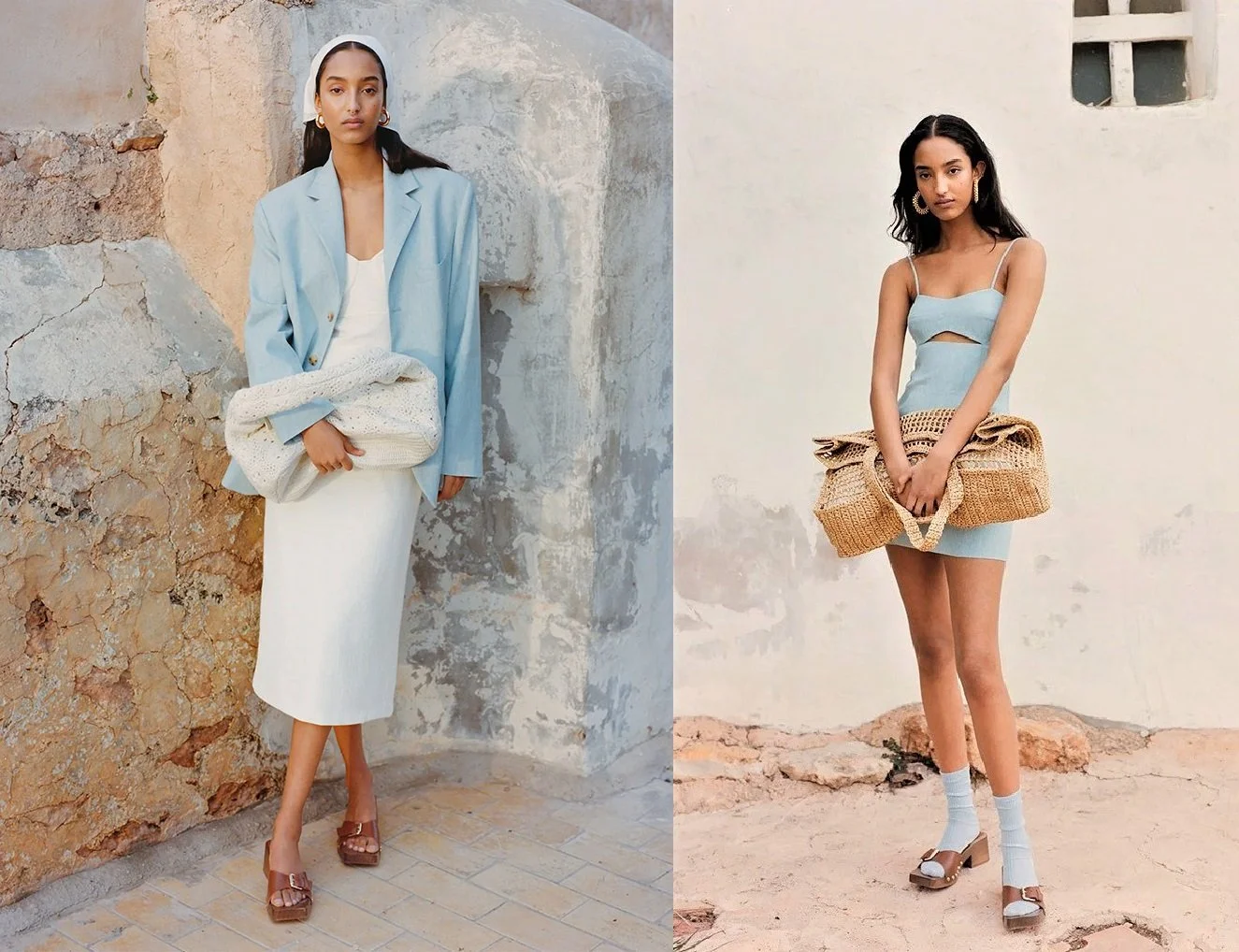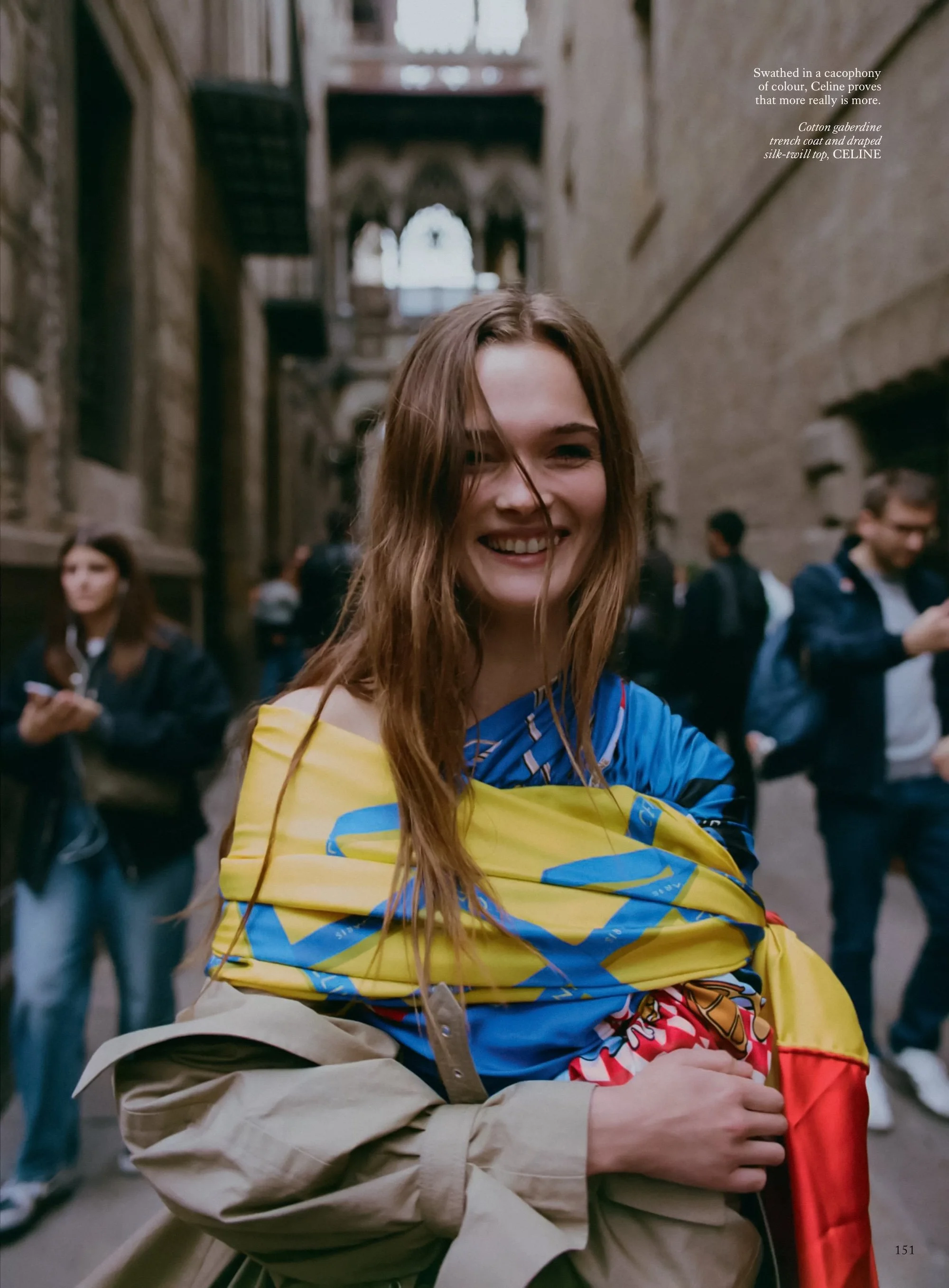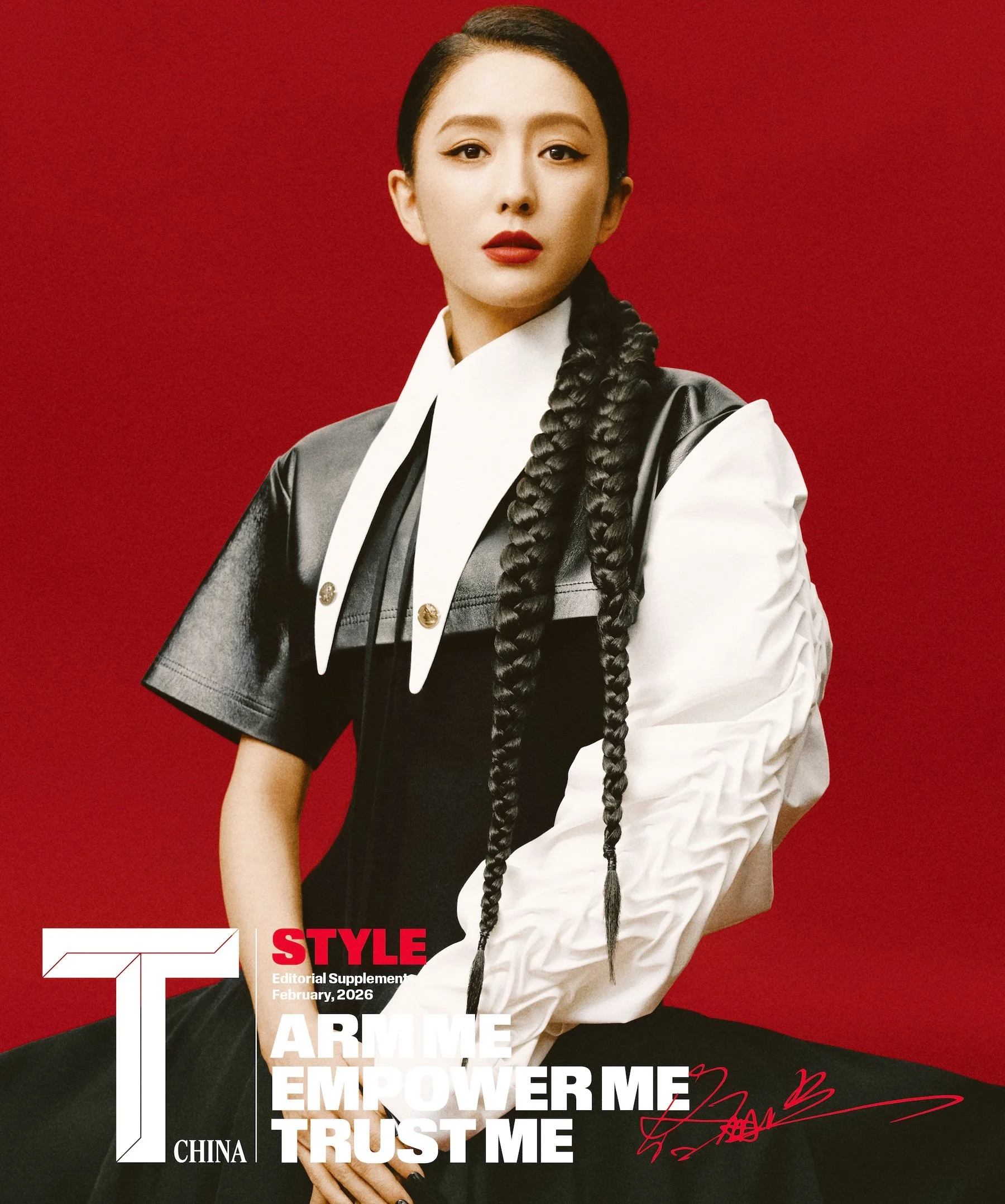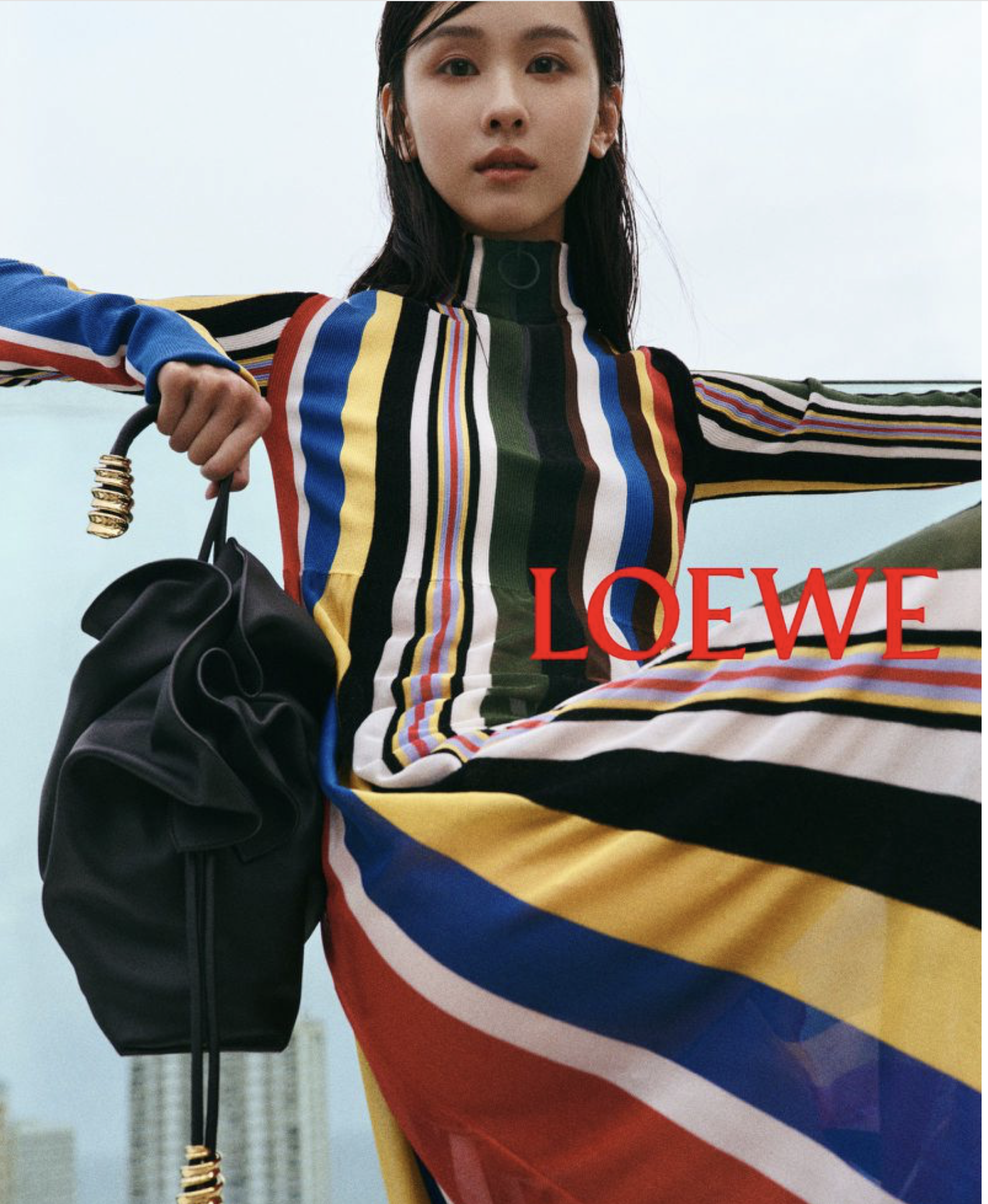On Sustainability: MANGO's Visions of Summer Collection 2022 with Mona Tougaard
/Top model Mona Tougaard appears in fashion brand MANGO’s ‘Visions of Summer | Natural Echoes take over the Season’ collection. Maria Alvarez and Aritz Iriarte Aguinaga styled the largely fluid and sheer silhouettes with earth-inspired textures, sensual details and increasing amounts of sustainable materials.
Fashion photographer Julia Noni [IG] is behind the lens with art direction by Patricia Diaz Manzano./ Hair by Christian Eberhard; makeup by Paca Navarro
Mango Using Recycled Polyester, Lyocell, Viscose in Collection
Reviewing multiple [but not all] pieces in the collection, AOC sees widespread use of lyocell and recycled polyester. The ribbed sweater is made of 77% viscose/23% polyester. Viscose is also a cellulose fiber as is lyocell, but with less drape and absorbency. We assume this polyester component of the fabric is not recycled.
The production of lyocell is generally considered to be a step forward for the planet. The eucalyptus trees used to produce lyocell grow quickly and without irrigation. Pesticides aren’t used and the eucalyptus is grown on land no longer fit for growing food.
Lenzig is a major player in producing multiple new “earth-friendly fibers”. In their own discussion of lyocell, Lenzig explains that the chemicals used to break down the plant fibers are not toxic and 99.5% of the dissolving agent can be used multiple times
Compared to cotton, lyocell has the potential to use half as much water in production — and perhaps even less. The fabric’s breathability is also considered to be great for the planet, as it doesn’t retain odors as quickly as cotton and can be washed less frequently, saving water.
Mango Joins Canopy’s Pack4Good
Mango is one of 35 fashion brands, three producers and two innovators ,including online fashion and lifestyle platform Zalando, who joined Canopy’s Pack4Good initiative in February 2022. In total mid-April 2022, Canopy’s Pack4Good initiative has 272 member companies representing over 154 billion dollars of annual revenue.
The Pack4Good initiative is working on multiple areas to lessen planetary waste due to packaging:
Recycled pulp and paper
Developing alternative fibers, like agricultural waste, into packaging products
Sourcing forest fiber — without a better alternative — from suppliers with a FSC certification
Innovative new design and out of the box thinking for new packaging concepts
Mango’s Current Sustainability Scorecard
Mango forecasts that by 2025, 100 percent of the polyester it uses across its assortment will be recycled, and all cellulosic fibers will be of “controlled and traceable origin”. These initiatives come under the previously discussed at AOC Mango sustainable sourcing strategy called “Committed.”
Eighty percent of its garments today are considered to be Committed— meaning that they are constituted of “at least 30 percent of more sustainable fibers (such as organic cotton, recycled cotton, Better Cotton Initiative cotton, recycled polyester, recycled wool or Tencel, among others) and/or have been manufactured using more sustainable production processes,” while abiding by social audits, per the company.
Anne of Carversville celebrates any and all progress in fashion industry sustainability, while holding especially big brands’ feet to the fire. While the “at least 30 percent” sustainable fibers Committed commitment is not impressive, Mango’s real results are currently exceeding the goal.
In 2021, Mango reported 91 percent of its garments employed “sustainable cotton,” 59 percent cellulose fibers of “controlled origin,” while 54 percent of polyester was of recycled origins, a target achieved four years ahead of time, per the release.
Nobody gets a pat on the back for these efforts. Nor should Mango be shredded for its serious efforts to become an infinitely better steward of our shared planet.
AOC has already written that we’re not impressed with the 30% threshold in Mango Committed. When they do significantly better than 30% and four years ahead of schedule, that achievement should be noted. ~ Anne





















